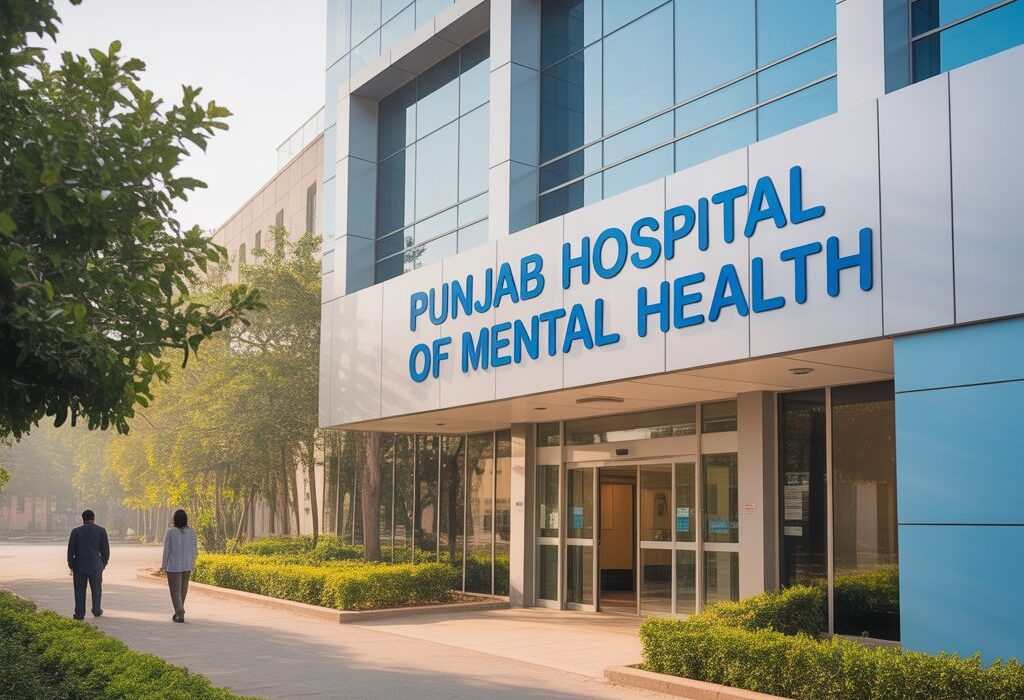A Guide to the Punjab Hospital of Mental Health
Seeking compassionate and expert care for mental health conditions is a vital step toward healing and recovery. In a region where understanding and resources are continually growing, finding the right facility can feel overwhelming. For many, the Punjab Hospital of Mental Health represents a beacon of hope and a center for professional psychiatric care. This article serves as a comprehensive guide to understanding the role, services, and importance of a specialized institution like this, empowering individuals and families to make informed decisions for their well-being.
Understanding what a modern mental health facility offers is the first step in dismantling stigma. A center such as the Punjab Hospital of Mental Health is fundamentally different from outdated perceptions of asylums. Instead, it operates as a dedicated medical hospital, focusing on diagnosis, treatment, and rehabilitation for a wide spectrum of psychiatric conditions. Its mission is grounded in science, compassion, and the goal of helping patients regain stability and return to their communities.
The Evolution of Mental Healthcare in the Region
Historically, mental health has been shrouded in misconception and silence. Fortunately, the landscape is changing. The establishment of dedicated facilities marks a significant shift towards medical recognition and ethical treatment. A modern Punjab Hospital of Mental Health is a testament to this progress. It moves away from isolation-based models and towards integrated care that treats the individual, not just the symptoms. This evolution reflects a global understanding that mental health is inextricably linked to overall health and deserves the same level of professional attention.
When to Seek Specialized Inpatient Care
Determining the right time to seek help at a specialized hospital is a common concern. Generally, inpatient care becomes necessary when an individual’s condition poses a risk to their safety or the safety of others, or when outpatient therapy is no longer sufficient. Specific indicators include:
- Severe Suicidal Ideation or Self-Harm: When thoughts of suicide transition into plans or actions, a secure and supportive environment is essential for stabilization.
- Acute Psychotic Episodes: Symptoms such as hallucinations (seeing or hearing things that aren’t there) or delusions (fixed false beliefs) often require intensive medication management and monitoring.
- Inability to Perform Daily Functions: When depression, anxiety, or other conditions become so debilitating that a person cannot eat, bathe, or manage basic self-care.
- Co-occurring Disorders: Complex cases involving both severe mental illness and substance abuse often need the integrated, round-the-clock care that a hospital setting provides.
A Look Inside: Services and Treatment Modalities
The core strength of a specialized institution lies in its multidisciplinary approach. Upon admission, patients at a facility like the Punjab Hospital of Mental Health typically undergo a comprehensive assessment. This evaluation, conducted by a team of psychiatrists and psychologists, leads to a personalized treatment plan. Key components of this plan often include:

1. Medical and Psychiatric Management
A cornerstone of inpatient treatment is careful medication management. Psychiatrists work to find the most effective medications at the proper dosages to alleviate symptoms. The controlled environment allows for close observation of how a patient responds, enabling swift adjustments to ensure both efficacy and comfort.
2. Evidence-Based Psychotherapy
Therapy is the heart of long-term recovery. Patients engage in individual psychotherapy sessions to delve into the root causes of their condition, develop coping strategies, and process trauma. Furthermore, group therapy sessions provide a powerful sense of community and shared experience, helping to break the isolation that often accompanies mental illness.
3. Holistic and Adjunctive Therapies
Modern mental healthcare recognizes the need to heal the whole person. Therefore, treatment plans frequently incorporate occupational therapy to rebuild practical life skills, recreational therapy to encourage joyful expression, and various wellness activities like mindfulness and yoga. These therapies are designed to help patients reconnect with themselves and build a foundation for a fulfilling life post-discharge.
The Path to Choosing the Right Facility
If you are considering a mental health hospital for yourself or a loved one, it is crucial to be an informed advocate. When researching a facility, you should prioritize certain key aspects. Look for accredited institutions staffed by qualified professionals, including licensed psychiatrists, clinical psychologists, and trained psychiatric nurses. Additionally, a strong emphasis on aftercare planning is a hallmark of a reputable center. A smooth transition back to daily life, with connections to outpatient therapists and support groups, is vital for sustaining recovery.
Breaking the Stigma, Building a Support System
One of the most significant barriers to seeking care remains societal stigma. It is essential to reframe mental illness as a medical condition, not a personal failure or a source of shame. Choosing to seek treatment is an act of profound courage and strength. Families play an indispensable role in this journey. By educating themselves, participating in family therapy sessions, and offering unwavering, non-judgmental support, loved ones can create a nurturing environment that significantly boosts the chances of successful, long-term recovery.
A Partner in Your Journey to Wellness
In conclusion, a dedicated facility represents a critical resource in the healthcare ecosystem. It provides a safe harbor during a mental health crisis, offering the expert care and structured environment necessary for healing. By understanding the comprehensive services, ethical approach, and compassionate philosophy of a modern mental health institution, individuals and families can approach the path to recovery with confidence and hope. Remember, reaching out for help is the first and most important step on the road to reclaiming your peace and well-being.
Frequently Asked Questions (FAQs)
1. What conditions does the Punjab Hospital of Mental Health treat?
The hospital provides comprehensive care for a wide range of severe mental health conditions. This includes major depressive disorder, anxiety disorders, bipolar disorder, schizophrenia, psychotic episodes, and complex cases involving co-occurring substance abuse and mental illness.
2. How is this hospital different from a general hospital’s psychiatry ward?
As a specialized facility, the Punjab Hospital of Mental Health is entirely dedicated to psychiatric care. This allows for a more intensive, multidisciplinary approach with a full team of specialists, a wider range of therapies (like occupational and recreational therapy), and an environment specifically designed for therapeutic healing and safety.
3. What does the admission process involve?
Admission typically begins with a comprehensive assessment by a team of psychiatrists and psychologists. This evaluation, which includes a medical and psychiatric history, is used to create a personalized treatment plan tailored to the individual’s specific needs and diagnosis.
4. Can families be involved in the treatment process?
Yes, family involvement is often encouraged. Many reputable facilities, including this one, offer family therapy sessions and educational programs. This helps families understand their loved one’s condition and learn how to best support them during treatment and after discharge.
5. What happens after a patient is discharged?
A robust aftercare plan is a critical part of the treatment. Before discharge, the team will create a detailed plan that typically includes referrals to outpatient therapists, support groups, and a clear medication management schedule to ensure a smooth transition and support long-term recovery.




